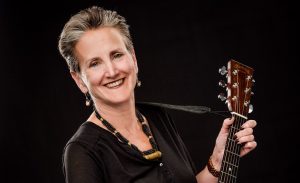I didn’t pick up much Yiddish as a kid, which is surprising, considering my father, my mother and her widowed father, whom we lived with from the time I was a young child, spoke it often at home – especially when they didn’t want me and my sister to understand them. Yiddish seemed to be their shared language, not mine.
I was, however, somewhat more attuned to Yiddish culture, thanks in large part to one of Jewish music’s greatest hits. Released in 1986, Mordechai Ben David’s Yidden remains to this day a staple of hasidic music and a crossover Jewish anthem – the sort of song you might expect to hear at a Jewish simcha, no matter the denomination.
The Yiddish lyrics are ebullient, filled with images of celebrations in Jerusalem, the sounding of the shofar and cheers of “L’chaim,” all punctuated by an exhilarating chorus: “Yidden, Yidden, kumt aheim! Moshiach vet shreiyin in di gassen fin Yerushalyaim. Yidden, Yidden, kumt tzu gein! Mit liebschaft, mit sholem – siz emes, es iz nischt kein cholem” (“Jews, Jews, come home! The Messiah is crying out in the streets of Jerusalem. Jews, Jews, come along! With love, with peace – this is the truth, it’s not a dream”).
Ben David was apparently unaware of Yidden’s bizarre progenitor when the song was presented to him for recording. The lyrics were fresh, but the music underneath was decidedly not – Yidden is, musically speaking, a near-complete ripoff of Germany’s entry in the 1979 Eurovision contest, a song called Dschinghis Khan by a group of the same name. (That year, Eurovision was held in Jerusalem for the first time, following Israel’s victory at the 1978 competition with A-Ba-Ni-Bi by Izhar Cohen and the Alphabeta; the host country would make it two in a row when Gali Atari and Milk and Honey won in 1979 for Hallelujah.) The German original’s lyrics, a light retelling of the life of Genghis Khan – sample lyrics: “He was the greatest lover and the strongest man of his day… And we have heard that all the women fell for him, so they say” – would surely have made the ultra-Orthodox Ben David blush.
Of course, Yidden is as much a line-dance as it is a musical number. The moves are simple enough for any Jewish child to learn – two steps to the right, two steps to the left, pivot 45 degrees, and repeat. I must have danced it hundreds of times as a teenager attending classmates’ bar mitzvahs (and a second round when they got married).
The combination of exotic lyrics and communal dance routine, with a swirling Euro-disco beat holding it all together, has made for an enduring Jewish hit.
READ: FROM YONI’S DESK: THE DESCENT TOWARD THE EXTREMES
As a child, I couldn’t have told you what the lyrics to Yidden were, let alone what they meant. All I knew was that one word – “Yidden” – its meaning so obvious that it didn’t require translation. It seemed to me to encapsulate so many emotions – a plaintive cry to remember our history, a boisterous appeal to move it forward and, above all, a tribute to Jewish joyfulness. It was just one Yiddish word, but it meant so much.






